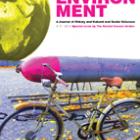Prochnow, Jeannette. “Fossilized Memory: The German-Russian Energy Partnership and the Production of Energo-political Knowledge.” Global Environment 11 (2013): 94–129. Republished by the Environment & Society Portal, Multimedia Library. http://www.environmentandsociety.org/node/7585.
The German-Russian energy cooperation on the natural gas market began with the discovery of the Urengoi gas field in 1966. Both German states invested heavily in the Russian natural gas market. This partnership has continued long after the collapse of socialism and today is more relevant than ever. These bilateral economic relations were accompanied by extensive media coverage in both German states as well as in the unified state, with the result that, today, the cooperation is referred to as a “tradition” of 40 years. Over the past decades German energy companies, politicians, and the media have fashioned a communicative field that turned the import of Russian gas into a res publica, the particularities of which are examined in this paper. The case exemplifies how the flow of resources across political borders has gravitated around the historicity of social memory. However, the exploitation and use of natural resources occupy a precarious place in public collective thought. Firstly, because the media coverage of German-Russian energy politics is connected to Germany’s past, the discourse has tended to show regional characteristics specific to the history of divided Germany. Secondly, the patterns of interpreting the extraction and trade of natural gas display various shifts. Nonetheless, the German-Russian energy partnership on the natural gas market was a recurring topic in newspapers (and audio-visual mass media) of the East and the West.
— Text from The White Horse Press website
All rights reserved. Made available on the Environment & Society Portal for nonprofit educational purposes only, courtesy of Jeannette Prochnow and XL edizioni.


